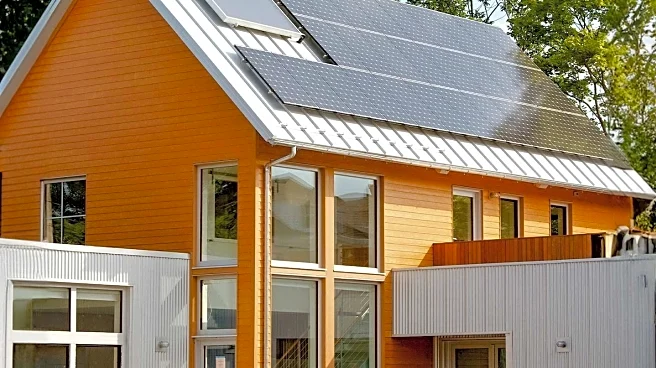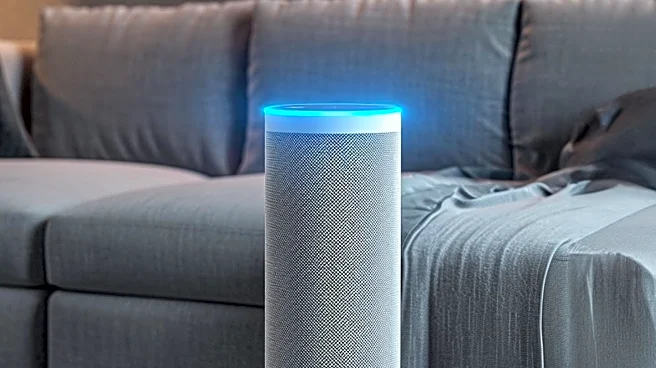What's Happening?
Veridian at County Farm, a new housing development in Ann Arbor, Michigan, is pioneering net-zero energy living. The community is designed to be all-electric, featuring rooftop solar panels, battery storage systems, geothermal heating, and electric heat pumps. Homes are equipped with induction cooking, electric vehicle charging stations, and all-electric appliances. The development aims to serve as a model for sustainable living across Michigan, demonstrating how communities can reduce energy bills and environmental impact through innovative design and technology.
Why It's Important?
The Veridian project represents a significant step towards sustainable urban development, showcasing how communities can achieve energy independence and reduce carbon footprints. By integrating renewable energy technologies, the development reduces reliance on fossil fuels and lowers energy costs for residents. This model could influence future housing projects, encouraging the adoption of clean energy solutions and promoting environmental sustainability. The success of such initiatives can drive policy changes and inspire other communities to pursue similar projects.
What's Next?
As construction continues and more residents move in, Veridian at County Farm will provide valuable insights into the practical implementation of net-zero energy living. The project's success could lead to increased interest and investment in similar developments, potentially influencing urban planning and housing policies. Stakeholders, including local governments and developers, may explore opportunities to replicate this model in other regions, further advancing the transition to sustainable living.
Beyond the Headlines
The development of net-zero energy communities like Veridian highlights the potential for technological innovation to address environmental challenges. It underscores the importance of collaboration between developers, policymakers, and residents in creating sustainable solutions. This approach not only benefits the environment but also enhances quality of life by reducing energy costs and promoting healthier living conditions.









